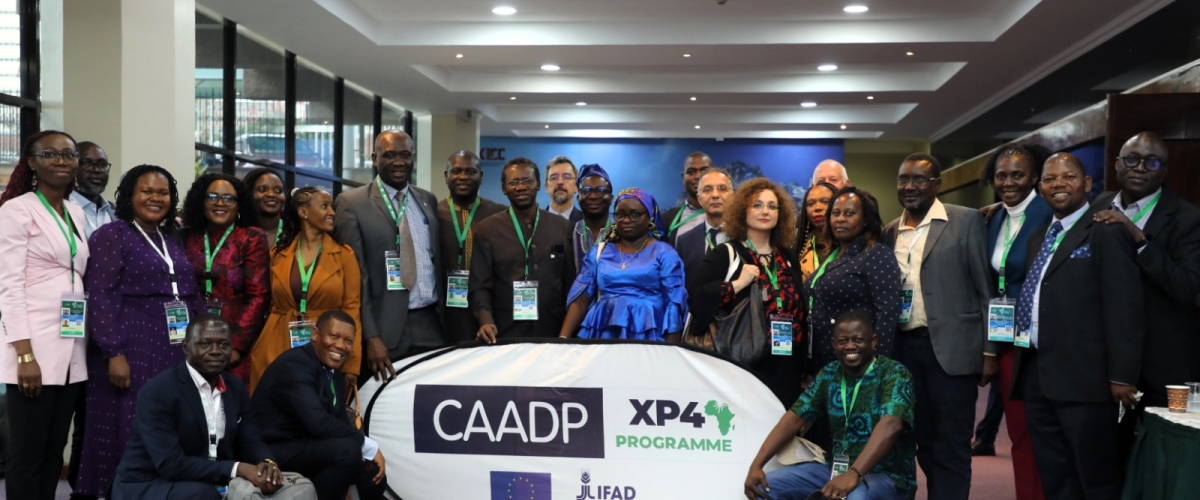
As the global movement toward nature-based farming gains momentum, agroecology, and regenerative agriculture are emerging as viable solutions for boosting the productivity of African agriculture while preserving biodiversity. However, the urgency of the situation cannot be overstated. An FAO report revealed a startling fact: Africa loses 50 tons of soil per hectare annually, costing up to $65 billion annually to counter the effects. The soil crisis has left 83% of agricultural land with fertility issues, endangering the continent's food security. This is a call to action to embrace agroecology as a key to reversing soil degradation and creating a more sustainable agricultural model.
Because of this, the CAADP-XP4 Consortium, in collaboration with IFAD and through financial support from the European Union, hosted a side event titled "Upscaling the Promises of Agroecology to Deliver Sustained Soil Health in Africa, which promised to chart a path toward a more resilient future for African agriculture. The event occurred at the Kenyatta International Conference Centre in Nairobi, where agricultural leaders, policymakers, and researchers gathered for the African Fertilizer and Soil Health Summit from May 7-9, 2024.
Prof Cliff Dlamini welcomed all delegates to the side event as he emphasized agroecology's critical role in food security. He called for coherent policy frameworks and research partnerships because they are essential for unlocking agroecology's potential.
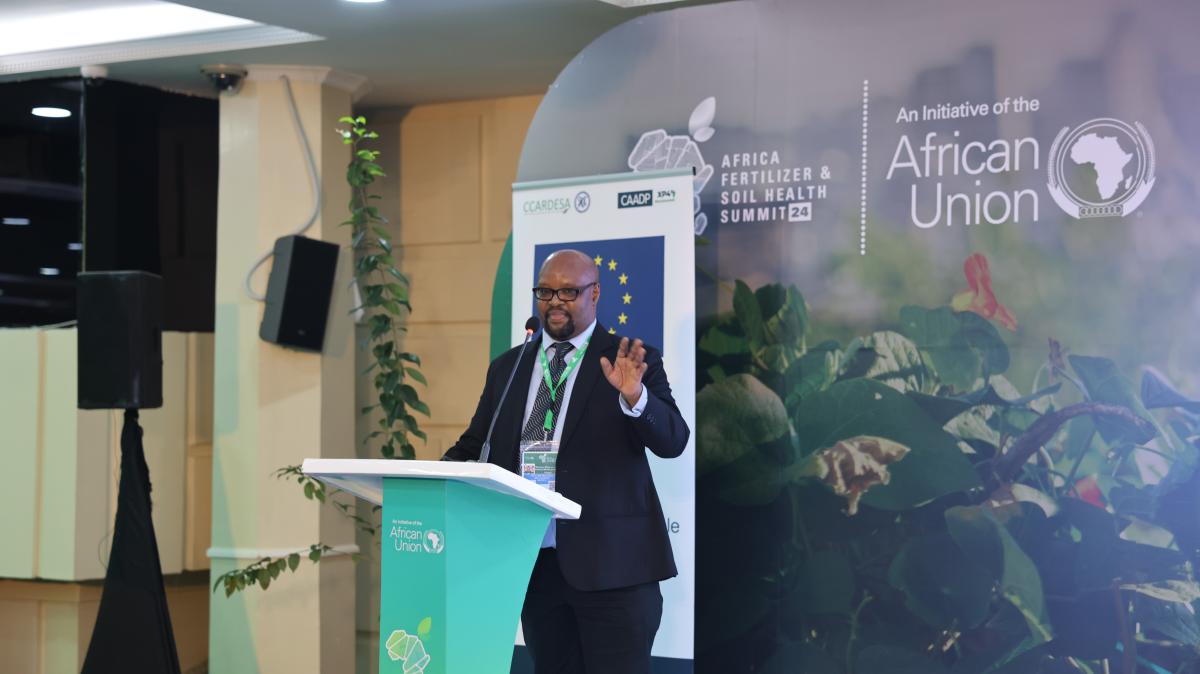
Mr. Amine Belhamissi, the IFAD representative, reaffirmed his organization’s commitment to promoting agroecological practices such as crop diversification, intercropping, and livestock integration, which can dramatically improve soil health.
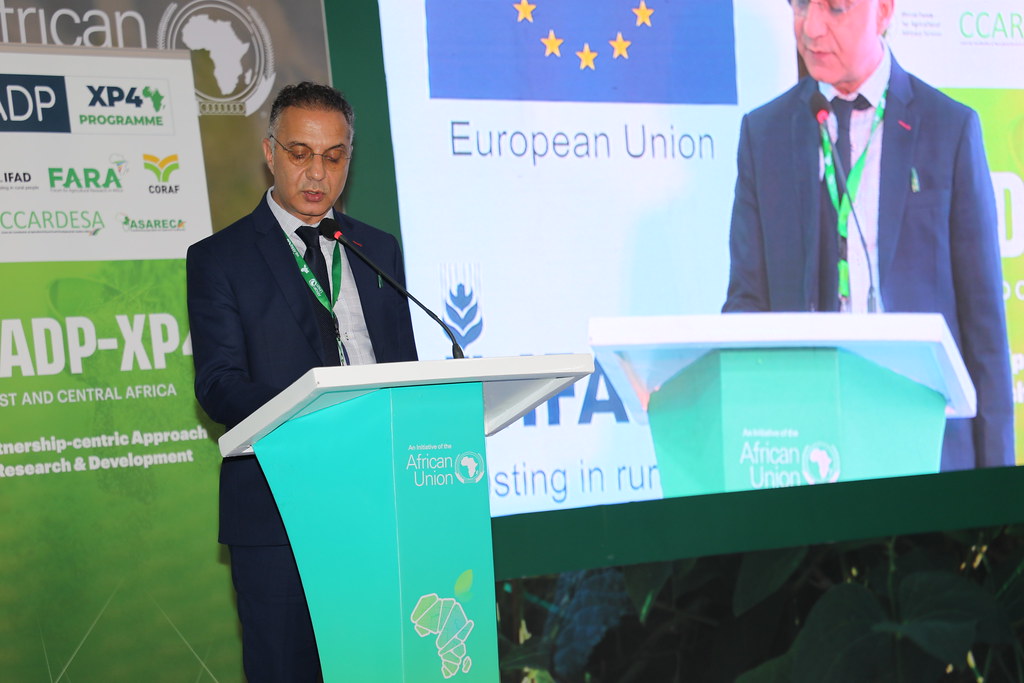
Dr. Alioune Fall, Executive Director of CORAF, spoke on behalf of the CAADP-XP4 Consortium, urging policies that align with farmers' needs: "We must ensure that farmers receive the support they need. Despite the many available technologies, we need scientifically proven scaling methods that can bring the benefits of agroecology to farmers at the grassroots."
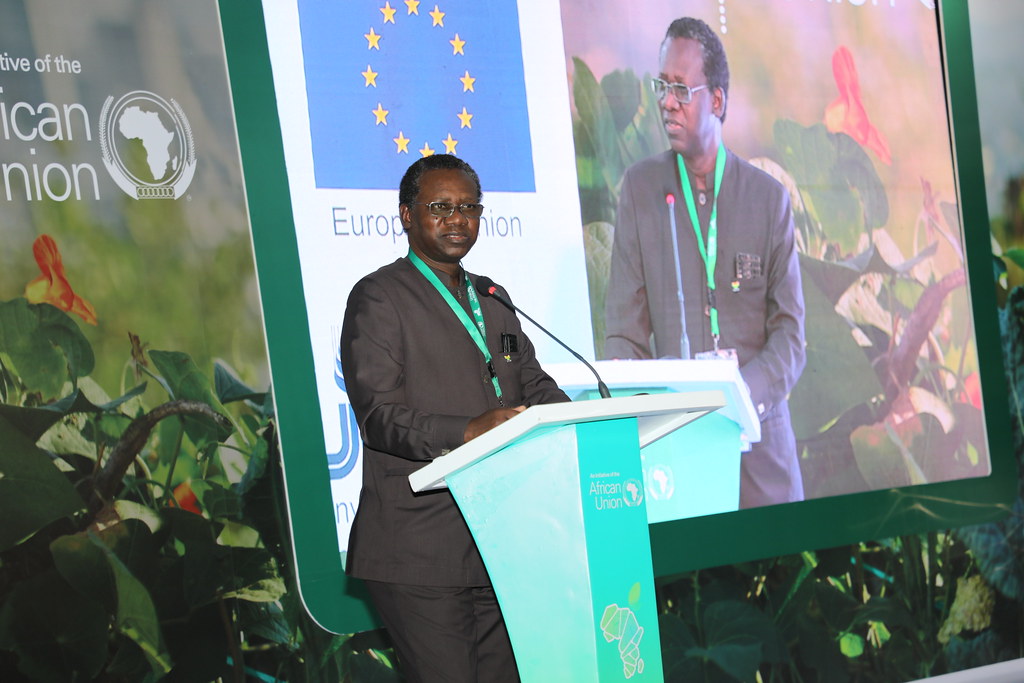
Professor Regis Chikowa framed agroecology as a transformative approach to meet Africa's agricultural challenges. He said, "Agroecology isn't just about farming techniques; it's about systemic transformation. We put farmers, stakeholders, and researchers at the forefront to ensure sustainable farming practices that work for everyone."
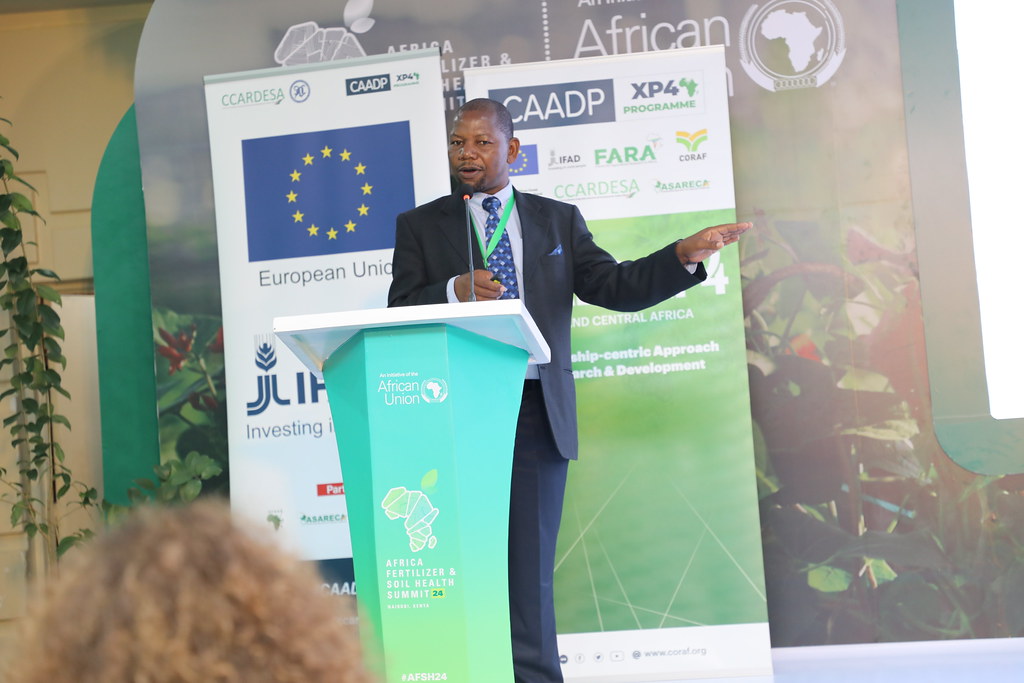
Dr. Ibrahim Gariba of the African Union emphasized the necessity of effective governance and collaboration: "To achieve food security in Africa, we must revise our funding mechanisms to incorporate ecological practices. Farmer education, training, and smart financing are key to success,” he said.
Mr. Hakim Baliraine, representing the East and Southern Africa Association of Smallholder Farmers, delivered an impassioned plea: "Agroecology might seem challenging from an academic standpoint, but it aligns with what we've been doing for generations. We should establish Agroecology Schools for journalists so they can educate the public about its benefits and reshape how people's views since media are custodians of information.
Ms. Sara Mbago Bhunu, representing IFAD, highlighted to the delegates the pivotal role women and youth play in advancing agroecology. She emphasized that their unique perspectives, resilience, and innovative approaches are indispensable in fostering sustainable agriculture. By empowering these groups with training, resources, and leadership opportunities, Bhunu stressed that the agroecological movement could achieve greater inclusivity and harness untapped potential, ultimately transforming African agriculture into a more resilient, regenerative system.
Harnessing Indigenous Knowledge by combining traditional agricultural wisdom with innovative practices empowers farmers to reduce their reliance on external inputs, was also emphasized.
Mr. Michael Hallam, an organic fertilizer producer from Botswana, stressed the importance of using fertilizers that enhance soil health. He also shared insights into his successful efforts to export his fertilizers across Southern Africa, underscoring the growing demand for products that boost crop yields and contribute to long-term soil vitality. He emphasized that consumers play a pivotal role in demanding traceable, healthy produce, which drives the adoption of agroecological practices.
Mr. Christophe Larose of the European Commission’s Directorate of International Partnerships also highlighted the European Union’s investments in supporting a transition to sustainable agriculture practices and food systems and its initiative to establish agroecology regional centers of excellence.
The event concluded with a collective call to action, urging stakeholders to collaborate and scale agroecology across the continent and affirming that they will chart a path toward a sustainable and ecological agricultural system in Africa.





